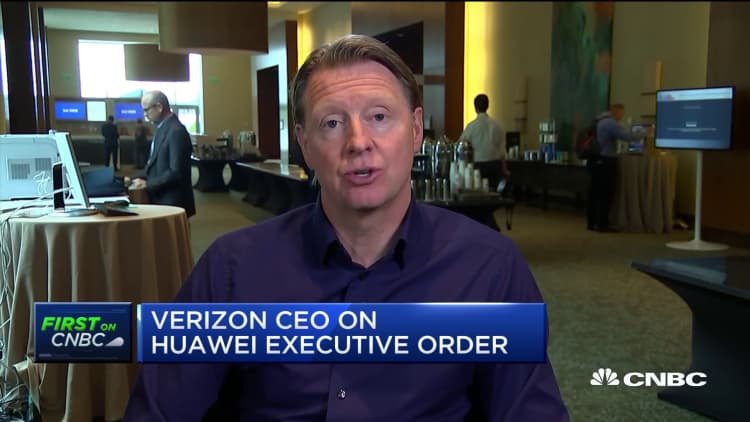Verizon's Chief Marketing Officer (CMO) Diego Scotti has said the ad industry needs to be more creative if it is to get people to watch advertising, or face more people signing up to subscription services to cut ads.
"Advertisers have got lazy and must be more creative ... If we don't get more creative, we have no business," said Scotti, speaking at an event hosted by The Economist at the Cannes Lions International Festival of Creativity on Monday.
Speaking to CNBC after the event he said: "People now have the choice of paying more for a non-advertising medium and experience. It puts so much more pressure on us to figure out how do we engage those consumers." He added that online ads that might run the width of a screen could pop up and annoy people, because they were created for a different medium or were produced as an afterthought, which is a conversation he has with his ad agencies "all the time."
"You have to have a sense of how someone is going to consume all this stuff because otherwise we are just polluting," he told CNBC.
Scotti joined the company in 2014 from fashion retailer J. Crew. He wants to create an emotional connection with Verizon in an industry that is "about who screams louder and is more bombastic," he told CNBC in January.
Making the company seem more human to customers, who would likely choose their cellphone network based on price over any particular love for a brand, aims to keep them loyal. "It is really like a new direction for the brand and really important as we transform from a telecommunications company to a technology company," Scotti said. Verizon announced a reorganization last November, splitting the business into consumer and business segments, as well as a media business including Huffington Post and Yahoo.
Verizon's Super Bowl ad in 2019 built on a series of commercials thanking first responders — the point being that two-thirds of those responders use Verizon to communicate. "The Team that Wouldn't Be Here" commercial featured the stories of 12 NFL stars who were involved in incidents where they were saved by first responders.

Scotti said there were some questions over whether the company should run another ad focusing on first responders, given it admitted it had slowed data of firefighters tackling a blaze in California last August. The company said it was a mistake and apologized at the time. "Some people were saying well, why are you talking about first responders, are you trying to cover up for what you did? I said, no, our commitment to first responders is not going to go away. And I will continue to thanks to the quality of our network, that's something we're going to keep talking about because that's who we are."
More recently, it has run a campaign showing LGBTQ+ people being reunited with their parents via phone, to coincide with Pride month in June. Scotti said showing "real" people in ads is now a focus for the company. "That is very different from what you see in our category with cheesy spokespeople, spokesmen in most cases," Scotti told CNBC.

Diversity is a current buzzword in marketing and a focus of the Cannes Lions festival this week. Verizon worked with the Center for Talent Innovation (CTI) on a study to understand how women and people of color feel in the workplace, conducting an online survey of more than 1,700 marketing and media executives in different companies in the U.S.
The results, published Monday, found that 60 percent of people reported instances of exclusion or discomfort at work and women were more likely than men to have say they have been underestimated, excluded or harassed.
Sixty percent of those surveyed said they repressed part of their personality at work — in a business world where leaders often talk about the importance of authenticity.
"This issue of diversity (has) a lot of focus on the talent in pipeline piece, meaning we need to bring (in) more diverse people," Scotti told CNBC. "We believe that you have to work on both that diversity talent pipeline (but) ... if you bring in all of these diverse people and then the environment in which they work is not inclusive, they're going to leave. So, you need to close the circle."

